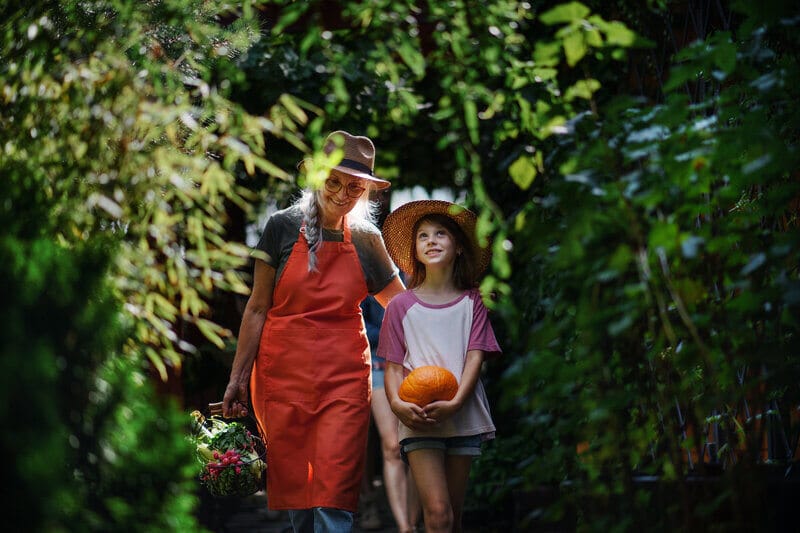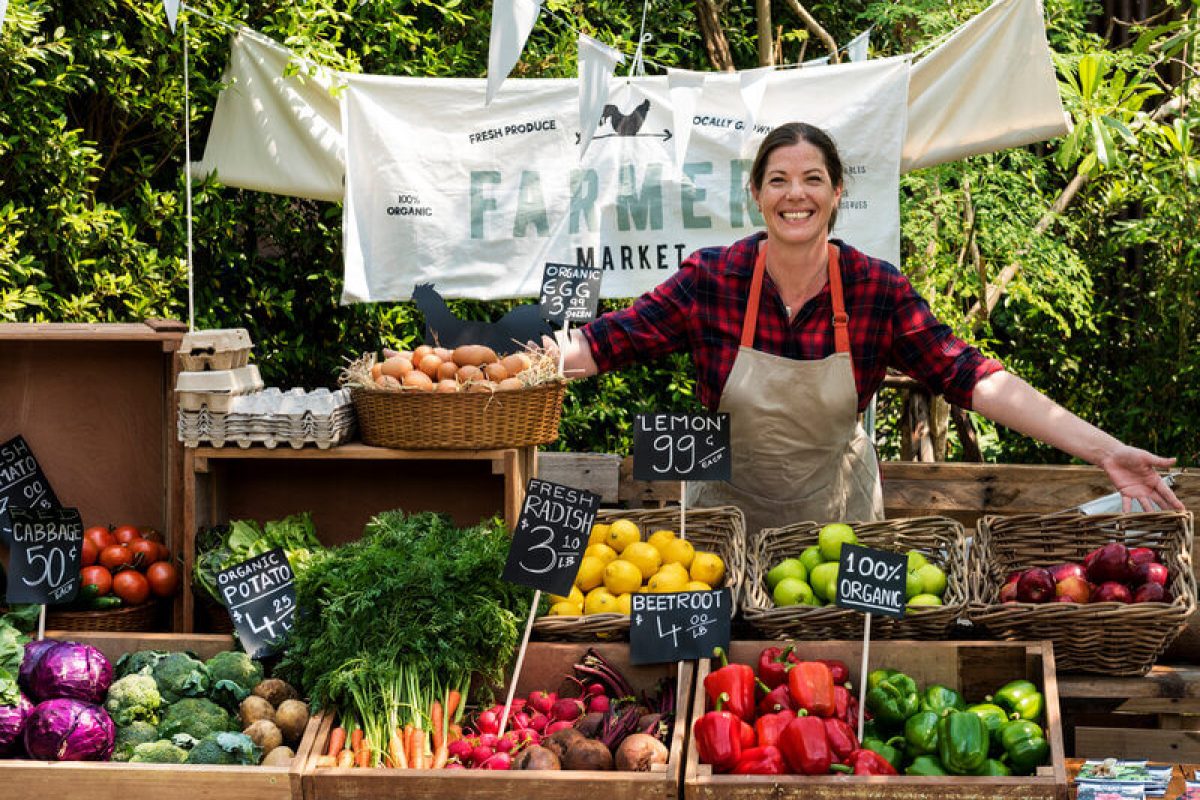Regenerative farming is attracting widespread attention with more and more farmers adopting nature’s ways to help improve our communities, protect our land, and offer us a chance at saving our planet.
And the good news is you don’t have to be a farmer to make your very own eco-friendly impact.
In this article, we’ll discuss the benefits of regenerative farming along with 7 simple ways to support regenerative farming without being a farmer!
What is regenerative farming?
In simple terms, regenerative farming is about farming with nature, not against it. It works to improve the land rather than harming it.
It’s about farming applying the principles learnt from nature and natural systems to nourish people, animals, and the earth. From the soil that grows the grass to the animals that eat it, to the water that flows through New Zealand’s farms and the food we eat.
Regenerative farming is holistic, everything is connected, interdependent and all part of one system. There is no starting or end point but a process of constant change that delivers measurable improvement in the health of the systems we work with.
The changes to ecological health can be monitored and verified with Ecological Outcome Verification. Is the land regenerating or degenerating under our management? In a similar way changes to organisational health are monitored with the Organisation Health Index.
What are the benefits of regenerative farming?
Including regenerative principles in farm management creates the conditions for nature to thrive in a way that provides ecological, social and economic health to farmers, communities and the country.
Key beneficial outcomes include
- Reduction in the loss of topsoil from our farmland through erosion
- Farming systems which encourage diversity at all levels, providing habitat for endangered and rare species reducing biodiversity loss
- Reducing the application of synthetic products with toxic impact on life at all levels including man
- Stronger rural communities with greater opportunity for families to live off the land
- Bringing life back into soils with greater infiltration and retention of water, long term sequestration of carbon deep into soils and consequent beneficial impact on climate

7 ways you can support regenerative farming
Your dollar can benefit planetary health
As a consumer, you have the power to create change more than you think.
By consciously choosing where you spend your money, you’ll have control over what companies you support. When you support companies that invest in regenerative farming, you’re having a say in how you think a business should be run and the type of food system you want to be a part of.
For the first time in history, we can let consumers know a product’s impact on the environment with Ecological Outcome Verification and Land to Market with empirical data to back it up. We will highlight those products that are having a net-positive impact on the land which empowers you as an individual to vote with the money you spend on food.
Know where your food comes from. You may not be able to source all the regenerative products you need right away but starting with a few key items is a great place to start.
Every purchase towards a regenerative company has a significant impact.
Buy regenerative clothing
All product produced on a farm verified as regenerative through EOV is worth supporting. This is not just about food, but also the fibre produced from these farms. Some of the biggest brands in the global clothing trade are now market partners of the Land to Market programme and are investing in farmers who are prepared to shift to regenerative methods.
Do you know the materials you cover yourself with when you purchase clothing items? Synthetic clothing materials are made from petroleum, plastics and chemicals which are not just bad for the environment and climate but are bad for you.
Some examples of regeneratively grown materials include:
- Hemp
- Linen
- Organic cotton
- Regeneratively grown wool
- Cashmere
- Angora
Grow your own garden
Take up gardening in your own yard or community garden or investigate opportunities to volunteer at a local farm.
You don’t need a lot of space or time to grow a few delicious crops and gardening can be an incredibly rewarding way for you and your family to learn more about your relationship with mother earth. Get connected with the soil, save money and experience the amazing taste of home grown.
Educate yourself
If you have never heard about the powerful effects of regenerative farming, then you’re not alone. The best place to start is by doing some of your own research.
Start with the introduction to Allan Savory the founder of holistic management and the president of the Savory Institute. Then learn the basic principles and terms, and how it differs from industrial and sustainable methods.
After you get accustomed to the basic principles you can go one step further by accessing a variety of helpful courses, videos and seminars that are available online.
To learn more about the education we provide start here or educate yourself with our online Savory courses. Alternatively, you can start by reading our blog.
Support local regenerative farmers
One of the best ways to become more involved in your food system is to support the farmers in your own backyard.
By supporting your local regenerative farmers, you’re supporting your community. It’s also a great way to help protect and conserve local landscapes in your region from conventional farming and commercial development.
To find out exactly where your food is coming from, engage with your local farmers and producers directly.
Incorporate regenerative practices in the workplace
You might be surprised that the principles of regenerative apply not only to farming and agriculture but also to communities, organisations, families, and businesses.
Organisations and individuals across New Zealand and the globe are conscious of new ways of doing things. New ways of producing healthier, more sustainable, more eco-friendly organisations, and new ways of thinking, leading, and collaborating in business.
When Regenerative Design principles are infused in our farms, communities and businesses, by our leaders or by anyone that shows a keen interest in making a change, that’s when a great transformation can occur.
Spread the word with family and friends
The word regenerative is now a buzzword that’s quickly becoming mainstream. And although the regenerative revolution is on the rise, there are many people who don’t know about it.
That’s where the word of mouth becomes a powerful tool that can inspire action in anyone you talk to.
There will be farmers who are cautious of transitioning to practices that are different from what they have traditionally done, and there will be people who simply don’t understand the regenerative farming concept.
That’s why sharing your knowledge and passion with the people you love will help contribute to the normalisation of these types of conversations throughout your community.

Work with us for a regenerative future
You don’t need to be a farmer to make an impact. Your contributions, big or small, will have a big impact in helping maintain a sustainable future for tomorrow.
Regenerative is a belief, a movement, that is transforming farming, agriculture, communities, business, and organisations.
It’s about believing in and learning from nature so we can all heal, renew, and grow to provide a healthy abundant future for all.
Through our partnerships with Savory Institute and nRhythm we are able to deliver practical solutions, implementation, training and education for a wide range of agricultural, commercial and governmental applications.
Contact us for more information or visit our home page to start your regenerative journey today.
And don’t forget to spread the word by sharing this post with your family and friends because your voice matters.
- Look for the Land to Market mark on product
- Know where your produce comes from
- Buy natural over synthetic
Ata Regenerative are at the forefront of regenerative agriculture practice in New Zealand. With 17 years working in the regenerative space and as the Savory Hub for NZ, Ata Regenerative is the only certified Ecological Outcome Verification provider in New Zealand. Ata Regenerative can assist with your transition to farm practice that focuses on the regeneration of soils, increased productivity, and biological diversity, as well as economic and social well-being. To find out more, contact us here.


